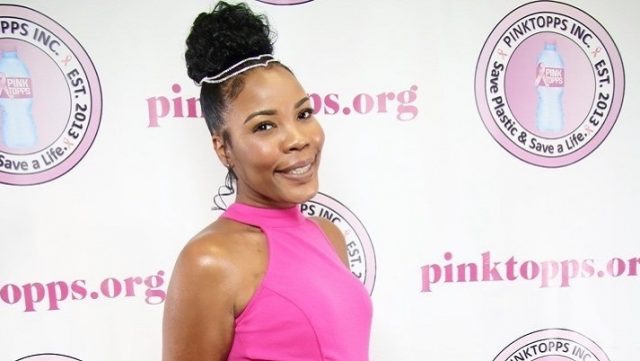
By Joseph D. Bryant
UAB
Raquel Smith never imagined becoming an advocate for breast cancer education and awareness. It was Smith’s breast cancer diagnosis that inspired her to help other women.
“God gave me a vision,” she said, sitting at a small table as sunlight streamed in through the plate glass window of the Pink Topps Resource and Wellness Center. “All of this started with me just going through my walk and wanting to make a difference. I feel it’s my mission on Earth.”
Pink Topps is a breast cancer advocacy organization founded by Smith that focuses on recycling plastic, which is donated to recycling centers in exchange for donations to the Bessemer-based nonprofit. Through Pink Topps, Smith promotes early detection, support during treatment and higher self-esteem for breast cancer patients and survivors, while raising awareness about ways the disease affects younger adults.
Smith was 27 years old when her doctor told her she had breast cancer.
“I was in disbelief,” she recalled. “I found out I had breast cancer before I ever had a mammogram. When I started to go to chemotherapy, I was the youngest person there.”
When she received her diagnosis, Smith was younger than the age recommended by the American Cancer Society (ACS) to begin breast cancer screening. According to the ACS, women ages 40 to 44 should have the option to start getting yearly mammograms. Women ages 45 to 54 who are at average risk for breast cancer are advised to be screened annually. Women age 55 and older should have screenings every two years or have an opportunity to continue screening annually.
Smith’s story of survivorship led to a mission of educating young women about breast cancer and empowering them through their cancer journeys. She compares breast cancer diagnosis, treatment and recovery to a long walk with multiple phases to reach the ultimate goal.
“I wanted to do something to help other women,” Smith said. “I want to be a catalyst to help them with their needs as they go through this walk. My biggest focus is for them to get their original selves back.”
In 2014, Pink Topps was born. Smith began with a plastic bottle recycling program in downtown Birmingham to help women pay for their mammograms. At the time, the cost of one mammogram was the equivalent of recycling 1,200 pounds of plastic.
Four years later, Smith moved Pink Topps to Bessemer, where she had more space for a resource center. Smith said Bessemer was the perfect place for Pink Topps as she sought to reach more women.
“Bessemer is an underrepresented community that has a lot of growth potential within it,” Smith said.
During her cancer treatment and subsequent work with Pink Topps, Smith was inspired by Silvia Gisiger-Camata, the program leader for prevention and care navigation in the Office of Community Outreach & Engagement at the O’Neal Comprehensive Cancer Center at UAB. Before joining the Office of Community Outreach & Engagement, Gisiger-Camata led the Young Breast Cancer Survivorship Network and Survive AL initiatives in the UAB School of Nursing.
Smith’s association with the O’Neal Cancer Center at UAB and the Office of Community Outreach & Engagement is longstanding. Her photograph hangs in the Cancer Center atrium as part of The Alabama Project, a collection of images documenting moments in the lives of breast cancer survivors throughout Alabama.
“She was actually one of the first people that I came into contact with when I had breast cancer,” Smith said of Gisiger-Camata. “She has been such a support for me. We connected on so many levels.”
During her breast cancer treatment, Smith discovered another surprise. She was pregnant. Despite the toll cancer was taking on her body, Smith survived the high-risk pregnancy and delivered a son in 2012.
“Impossible is possible with God,” she said. “That is definitely the quote that I live by. I’m a walking testimony to help other women.”
Smith has since taken on a variety of other missions with the O’Neal Cancer Center, the Office of Community Outreach & Engagement and UAB as a whole.
In addition to her efforts to improve breast cancer awareness and support, Smith recently collaborated with the Office of Community Outreach & Engagement, the Cancer Center’s Cancer Control & Population Sciences Research Program, and the program’s co-leader, Dr. Laura Rogers, on an initiative to learn how increased physical activity improves the health and well-being of cancer survivors. Since the pandemic began, Smith has also helped organize vaccination opportunities at UAB.
“Once you start, you just can’t stop because there are so many people who need help,” Smith said.
This story originally ran in the October 2021 issue of Community Connections, the monthly newsletter of the Office of Community Outreach & Engagement at the O’Neal Comprehensive Cancer Center at UAB.




